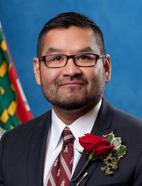Thank you, Mr. Speaker. Ensuring that housing programs and services reflect community values and priorities has been a key commitment of this government. Implementing Northern Solutions for Northern Housing also means working in partnership with other orders of government to develop more affordable housing. To meet these commitments, we have been working hand-in-hand with local governments to develop community housing plans that will guide and support their housing aspirations.
Mr. Speaker, the community housing plan process is well under way, with 12 communities across the Northwest Territories engaged in this work. We are close to celebrating the establishment of a community housing plan for the community of Whati, as well as Paulatuk and Fort Liard close behind.
We recognize that we have set ambitious goals for ourselves with this initiative. It takes time to do these community plans right. We are committed to working with our partners and residents in a meaningful and respectful manner. It is important that we take the time to listen and learn from each other, and sometimes that means that we cannot rush things.
This respect will ensure that community leaders and residents have full involvement in the creation of these plans, feel a sense of ownership, use the plans, and see them as a great tool to guide housing decisions in their communities.
In that spirit of respect, community leadership is critical and we are working closely with local leaders. Chiefs, mayors, and their councils have recognized from the beginning how important it is for their communities' voices to be heard.
We have also hired local housing facilitators to assist with the community planning and outreach to community residents. These contacts have been invaluable, and we could not do this work without their help.
Housing is one of the most important aspects of our lives. Having a roof over our heads is the starting point for successful, healthy living. Historically, our territory has faced many housing challenges, and talking about those challenges can be tough. Despite that, the turnout when we have our community meetings has been huge.
I am impressed by the broad participation. I want to thank everyone at the community level for coming out and sharing their knowledge and for working with us to develop your community plans.
Mr. Speaker, when I say that these plans belong to our communities, I mean it. Without the investment of time from community leaders and the residents, this would be a top-down exercise. We are taking the time to make sure these plans reflect local wisdom, experience, and a vision for the future. Several community housing plans will soon be complete, and I am confident communities will use them strategically to help meet local housing priorities. Mahsi cho, Mr. Speaker.
